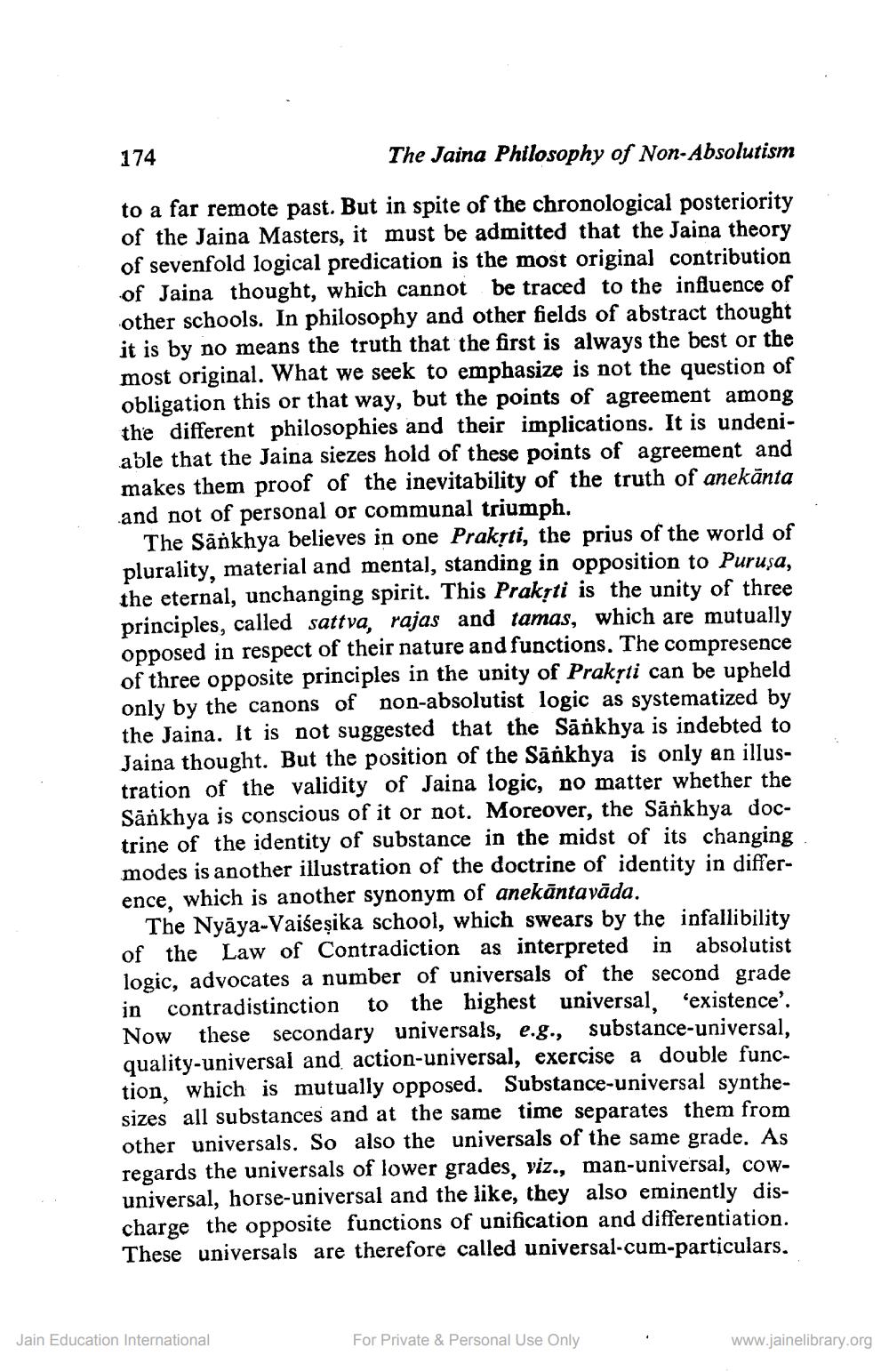________________
174
The Jaina Philosophy of Non-Absolutism
to a far remote past. But in spite of the chronological posteriority of the Jaina Masters, it must be admitted that the Jaina theory of sevenfold logical predication is the most original contribution of Jaina thought, which cannot be traced to the influence of other schools. In philosophy and other fields of abstract thought it is by no means the truth that the first is always the best or the most original. What we seek to emphasize is not the question of obligation this or that way, but the points of agreement among the different philosophies and their implications. It is undeniable that the Jaina siezes hold of these points of agreement and makes them proof of the inevitability of the truth of anekānta and not of personal or communal triumph.
The Sankhya believes in one Praksti, the prius of the world of plurality, material and mental, standing in opposition to Puruşa, the eternal, unchanging spirit. This Praksti is the unity of three principles, called sattva, rajas and tamas, which are mutually opposed in respect of their nature and functions. The compresence of three opposite principles in the unity of Praksti can be upheld only by the canons of non-absolutist logic as systematized by the Jaina. It is not suggested that the Sānkhya is indebted to Jaina thought. But the position of the Sankhya is only an illustration of the validity of Jaina logic, no matter whether the Sankhya is conscious of it or not. Moreover, the Sänkhya doctrine of the identity of substance in the midst of its changing modes is another illustration of the doctrine of identity in difference, which is another synonym of anekāntavāda.
The Nyāya-Vaišeșika school, which swears by the infallibility of the Law of Contradiction as interpreted in absolutist logic, advocates a number of universals of the second grade in contradistinction to the highest universal, 'existence'. Now these secondary universals, e.g., substance-universal, quality-universal and action-universal, exercise a double function, which is mutually opposed. Substance-universal synthesizes all substances and at the same time separates them from other universals. So also the universals of the same grade. As regards the universals of lower grades, viz., man-universal, cowuniversal, horse-universal and the like, they also eminently discharge the opposite functions of unification and differentiation. These universals are therefore called universal-cum-particulars.
Jain Education International
For Private & Personal Use Only
www.jainelibrary.org




